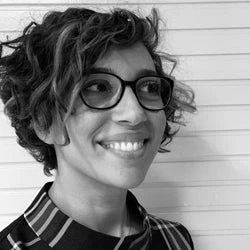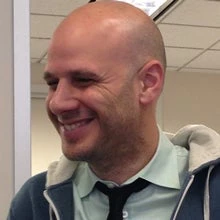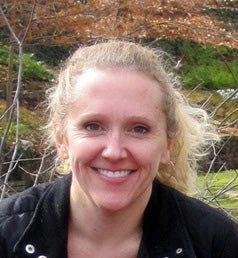As we get ready for a new hiring season, we thought we would introduce you to the set of researchers hired into the World Bank’s Development Research Group and DIME groups during the past year. Between the two groups we hired seven excellent young development researchers, six of whom have now joined in-person at the Bank, and one who will be joining after a year’s post-doc. We hope by highlighting them that our colleagues in the operational units at the World Bank may see someone they want to reach out to for collaborations, and that our friends in academia will consider them when deciding on who to invite for seminars and conferences.
Antoine Deeb is an Economist in the DIME group, and received his Ph.D. from UC Santa Barbara. His work focuses on empirical and methodological questions pertaining to the economics of education and development economics. He is currently working on a methodological paper regarding the estimation and use of value-added measures, and the role of exposure to religious diversity in a developing country with deep societal divisions. At the bank, Antoine is looking to leverage his prior work to study the role of an efficient judiciary and public servants in determining economic growth, and how to identify successful education programs and scale them up in developing countries
Carolina Lopez is a development economist focusing on education, human capital, and behavioral economics. In her job market paper, she studies how students' misperceptions about labor market and their own performance during high school can have negative consequences on graduation, especially for those students who are close to finishing secondary education. She shows how the provision of information to correct inaccurate beliefs during high school senior year can increase graduation rates, mainly for poor-performing students at baseline. She also finds positive impacts on college enrollment. Lopez received her Ph.D. in Economics from Brown University in May 2022. She will spend one year as a Post-Doctoral Research Fellow at the Harvard Kennedy School before joining DECRG in September 2023.
Manuel Garcia Santana has joined as a Senior Economist in the Macroeconomics and Growth unit of the research department. His research lies at the intersection of Macroeconomics, Development Economics, and International/inter-regional trade. He is currently working on understanding the different channels through which government procurement affects economic development from a macroeconomic perspective. For example, in one of his current papers, he asks: What are the implications of the interaction between public procurement and firms’ access to credit for the short-run and long-run transmission of fiscal policy? In another recent paper, he asks: Are governments locally biased when buying goods and services from private firms? If so, how costly are these biases for aggregate productivity and welfare? In addition, he studies the causes and consequences of structural change, defined as the phenomenon through which countries reallocate production factors across sectors along their development process. In particular, his current projects aim to understand how the input-output structure of the economy, i.e., how the different sectors are interconnected through purchases of intermediate inputs, affects that phenomenon. He is interested in operational work related to these topics.
Hannah Uckat is an Economist in the Development Impact Evaluation (DIME) Department at the World Bank. Her expertise combines private sector development, entrepreneurship, and gender. She researches firm growth, productivity, and organisation in low- and middle-income countries, and the interaction between the workplace and the household. Her Job Market Paper investigates the impact of women's promotions on intra-household bargaining in Bangladesh. She finds that women’s career advancement improves female bargaining power in the household, both for promoted workers directly and indirectly for workers exposed to female managers in the workplace. In on-going and new work in the Middle East and Central and Eastern Africa, she studies the impact of home-grown school feeding models on local producers, markets and workers; tests different approaches to increase female entrepreneurs' willingness to enter business competitions; investigates how to successfully implement climate-change adaptation and mitigation policies targeting the private sector; and develops interventions to help businesses of forcibly displaced persons grow. Hannah welcomes collaborations that relate to firm growth, entrepreneurship, and labor markets, including how these topics interact with gender roles and climate change policies. After her PhD in Economics from the University of Oxford, Hannah worked as a Young Professional in the operational part of the World Bank before joining DIME.
Federica Zeni is an Economist in the Finance and Private Sector Development unit of the research department. Her research lies at the intersection of Corporate Finance and Environmental Economics. She studies the interaction between financial markets and carbon pricing policies, and how those are shaping firms' financial structure and incentives to mitigate carbon emissions. In her job market paper, Federica investigated the design of debt securities aimed at improving corporate sustainability performance. In a previous work, she studied how firms’ belief about climate regulation influenced their carbon mitigation actions in presence of cross-firm reputation risk. She is interested in operational work in these areas, and she is currently part of a research team working with Bank operations on issues related to sustainability-linked and green credit lines. She holds a PhD in Finance from Imperial College London and a M.Sc. in Probability and Finance from Pierre and Marie Curie and École Polytechnique universities.
Sylvan Herskowitz is an Economist in the DIME group. His research centers on topics related to financial inclusion and household decision-making along with themes of gender, agriculture, conflict, and behavioral economics. His recent research projects have included how financial constraints increase sports betting in Uganda, firm displacement in response to violence in Afghanistan, and how survey fatigue induces biases in measurement of labor against women and youth in Ghana. Sylvan uses a wide range of empirical methods depending on the availability of existing data and their suitability for answering the research question, including field, lab, and natural experiments. The majority of his field work is in Africa, building on experiences he’s had living and working on the continent in past lives as a US Peace Corps Volunteer (Niger) and DIME field coordinator (Malawi). Sylvan was a Research Fellow at the International Food Policy Research Institute in Washington, DC for five years before joining DIME.
Arlen Guarin is an Economist at DIME. He is a development and public economist and has a particular interest in studying the economics of policies that aim to reduce poverty and inequality by targeting the most disadvantaged and vulnerable members of society. The focus of his job market paper is reparations, which are policies that aim to compensate victims of human rights violations. His results show how reparations do impact victims’ well-being and have the potential to rebuild recipients’ lives. In ongoing work, Arlen and his coauthors also explore the effects of a random assignment of physicians to underserved areas in Colombia, finding that more skilled physicians can differentially improve the health outcomes of their more at-risk patients. Arlen looks forward to collaborating on topics related to conflict, recovery, and transitioning into peace, as well as the evaluation of health interventions and other policies that target the most vulnerable.
We also remind you of the series (part 1, part 2, part 3) we published in March 2021 on our previous sets of new hires, and also welcome Gabriel Englander, Megan Lang, and Matias Moretti who have all now joined after their post-docs. Here is the full list of researchers in the research group and DIME.






Join the Conversation